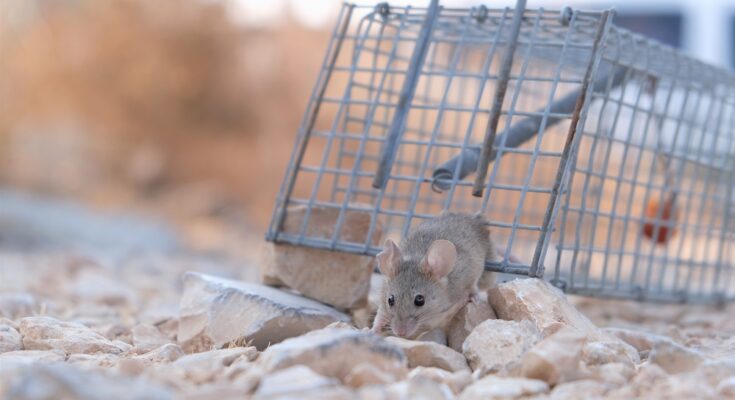Your family’s health and happiness depend on a calm and healthy home environment. Unfortunately, pests can quickly disrupt this tranquility and pose serious health risks. From disease transmission to allergies and property damage, pests can wreak havoc on both your physical and mental health. You may restore control of your home environment, though, by being aware of the health hazards posed by pests and taking practical pest management methods. In this article, we’ll look at the potential health risks that pests might provide as well as offer useful advice for getting rid of them.
Understanding the Health Risks:
Disease Transmission: Pests such as mosquitoes, flies, and rodents are known carriers of various diseases. Dangerous infections like the West Nile virus, Zika virus, and dengue fever can spread through mosquito bites. Flies can spread bacteria and contaminate food, leading to gastrointestinal infections. Rodents provide a serious health risk because they can spread infections like Salmonella and Hantavirus. It is essential to get rid of these pests and reduce the possibility of sickness spreading within your house.
Allergies and Asthma: Rodents, dust mites, and cockroaches are common allergens and asthma triggers. Cockroach poop, dust mite poop, and rodent dander can all cause respiratory symptoms like coughing, wheezing, nasal congestion, and allergic responses. Pre-existing respiratory issues make them more susceptible. Effective pest control measures are vital to reduce allergens and improve indoor air quality.
There are several insects that can sting or bite you painfully, including bed bugs, fleas, and other stinging creatures. Bed bugs feed on human blood and their bites can lead to itching, skin irritation, and secondary infections. Flea bites can cause severe itching and transmit diseases. Allergic reactions to stinging insects, such as bees, wasps, and hornets, can be mild to potentially fatal. Proper pest control can help prevent these painful encounters.
Property Damage: Pests like termites, rodents, and carpenter ants can cause significant damage to your home’s structure and belongings. Termites silently feed on wooden structures, compromising their integrity over time. Rodents have a habit of chewing on wires, insulation, and furniture, posing a fire hazard and damaging property. Carpenter ants tunnel through wood, causing structural damage. Effective pest control measures protect your property and help maintain its value.
Eliminating Pests and Implementing Pest Control:
Regular Cleaning and Maintenance: Maintaining a clean and clutter-free home is an important step in pest prevention. Regularly vacuuming, sweeping, and dusting can help eliminate food crumbs and debris that attract pests. Pay attention to areas like kitchens, dining areas, and storage spaces. Additionally, seal cracks and openings in walls, windows, and doors to prevent pests from entering your home.
Remove Standing Water: Pests like mosquitoes breed in stagnant water. Regularly inspect your home for areas of standing water, such as flower pots, bird baths, and clogged gutters. Eliminate these sources or ensure proper drainage to prevent mosquito breeding.
Contact Professional Pest Control: It is advised to contact professional pest control services in cases of serious infestations or ongoing pest issues. Pest control professionals have the expertise and knowledge to identify and eliminate pests effectively. They use safe and targeted methods to eliminate pests while minimizing risks to human health and the environment.
IPM (Integrated Pest Management): IPM is a long-term pest prevention strategy that is also environmentally benign. It combines various methods, including biological controls, habitat modification, and targeted pesticide applications. IPM seeks to use less pesticides while managing pests successfully.
Identify and Seal Entry Points: Pests can find their way into your home through small cracks, gaps, and openings. Examine your property carefully to find any potential entrance points. Seal any openings with caulk or weather stripping to prevent pests from gaining access. Pay close attention to areas around doors, windows, pipes, and utility openings.
Proper Waste Management: Proper waste management is essential in preventing pest infestations. Keep your indoor and outdoor trash bins tightly sealed to prevent pests from scavenging for food. Dispose of garbage regularly and ensure that your outdoor trash cans are located away from the house. Clean your garbage cans regularly to eliminate odors that can attract pests.
Trim Vegetation and Remove Debris: Pests often use vegetation and debris as hiding places and breeding grounds. Trim back tree branches, shrubs, and vines that come into contact with your home. Clear away any leaf piles, woodpiles, or other debris that may serve as harborage for pests. You can deter pests from settling close to your home by maintaining a clean and well-maintained exterior environment.
Maintain Proper Drainage: Standing water is a magnet for pests, especially mosquitoes. Ensure that your property has proper drainage to prevent water from accumulating. Clean and unclog gutters regularly to allow rainwater to flow freely. Fix any leaky faucets or pipes to prevent moisture buildup. By eliminating standing water, you can reduce the risk of mosquito breeding and other water-loving pests.
Practice Good Hygiene: Infestations of pests can be avoided by following good hygiene habits in your home. Clean up spills promptly, wipe down countertops, and sweep floors regularly. Keep food preparation areas clean and free of crumbs or food debris. Wash dishes immediately after use and store them in a secure place. By removing potential food sources, you can discourage pests from invading your home.
Install Screens and Seal Windows: Installing screens on doors and windows can act as a physical barrier, preventing pests from entering your home while allowing for proper ventilation. Ensure that screens are intact and free from tears or holes. Seal gaps around windows and doors with weather stripping to further minimize entry points for pests.
Hire a pest control specialist: If you are coping with a significant or ongoing pest infestation, it is needed to seek assistance from a professional. They have the abilities, know-how, and tools required to precisely find, manage, and remove pests from your home. Pest control professionals can tailor their approach to your specific pest problem, ensuring a comprehensive and long-lasting solution.
Also Read: 8 Benefits of Using Dhoop Sticks for Aromatherapy
Conclusion
Protecting your home from pests requires a proactive and multi-faceted approach. By implementing proper pest control measures such as regular cleaning and maintenance, sealing entry points, and practicing good hygiene, you can minimize the risk of infestations. Additionally, seeking professional pest control services when necessary, can provide targeted and effective solutions. Keep in mind that a pest-free house not only encourages a healthy living environment but also offers you and your family peace of mind. Take charge of your home and get rid of pests to make a secure, cozy, and pest-free environment that everyone can enjoy.




